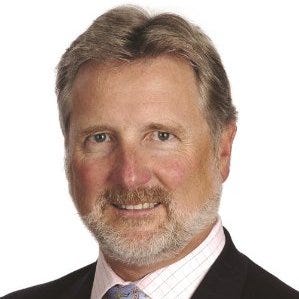Healthcare Investor Allegedly Embezzled $17M
A recent lawsuit filed in San Francisco calls G. Steven Burrill a "fraudster," accusing him of stealing sizable sums of cash from investment funds he managed.
|
G. Steven Burrill |
Brian Buntz and Chris Newmarker
G. Steven Burrill had been one of the most influential investors in healthcare--especially so in biotech and in digital health technologies. But in the past year, he's been hit with two lawsuits accusing him of mismanaging sizable investment funds. The most recent suit accuses Burrill of embezzling at least $17,637,759 from 2007 to 2013. In addition, the suit says that the fraud resulted in more than $30 million in investment losses.
The most recent lawsuit, which was filed July 6 in the Superior Court of California in San Francisco, accuses Burrill of fraud, breach of fiduciary duty, and theft. The Burrill Life Sciences Capital Fund he managed was specifically named in the suit. Two of his colleagues, chief legal counsel Victor Herbert and chief financial officer Helena Sen were also named.
The lawsuit states that the fraud "came to light only because three insiders from the defendants' organization informed the fund's limited partners," which sparked an investigation. The partners' investigations sparked civil and criminal investigations by federal authorities, according to the lawsuit.
Burrill could not be immediately reached for comment. The Wall Street Journal wasn't able to immediately reach Burrill, Herbert, or Sen.
In 2014, Burrill was prohibited from managing a $283 million venture capital fund by institutional investors such as the Treasury of the State of North Carolina, Oregon Investment Fund, Monsanto, and Celgene.
The most recent suit states that Burrill's modus operandi for embezzlement was to divert cash from an investment fund into a complex web of entities he controlled or owned. The transactions were explained away as being related to management fees or simply called "transfers."
Burrill's organization states that three longtime managing directors at Burrill's organization emerged as whistleblowers after learning of the fraud. They sent a letter to the fund's limited partners, notifying them of the "improper 'advances' and 'transfers,'" and that the fund had lacked enough money to make follow-on investments it was committed to.
The lawsuit says that Burrill, an accountant with 28 years experience at Ernst & Young, should have known better. "He at all relevant times was intimately familiar with, and expert in, applicable accounting and related rules."
This isn't the first time that Burrill has been a lightening rod for controversy, either. Burrill has been criticized in Minnesota because his talk in the last decade of a $1 billion investment fund to support a biobusiness park helped persuade the state to spend millions on a highway interchange. Burrill's fund never materialized, leading to an "interchange to nowhere" on U.S. 52 in Pine Island, MN, between the Twin Cities medical device hub and Mayo Clinic's home in Rochester.
Refresh your medical device industry knowledge at MEDevice San Diego, September 1-2, 2015. |
Brian Buntz is the editor-in-chief of MPMN and Qmed. Follow him on Twitter at @brian_buntz.Chris Newmarker is senior editor of MPMN and Qmed. Follow him on Twitter at @newmarker
Like what you're reading? Subscribe to our daily e-newsletter.
About the Author(s)
You May Also Like



